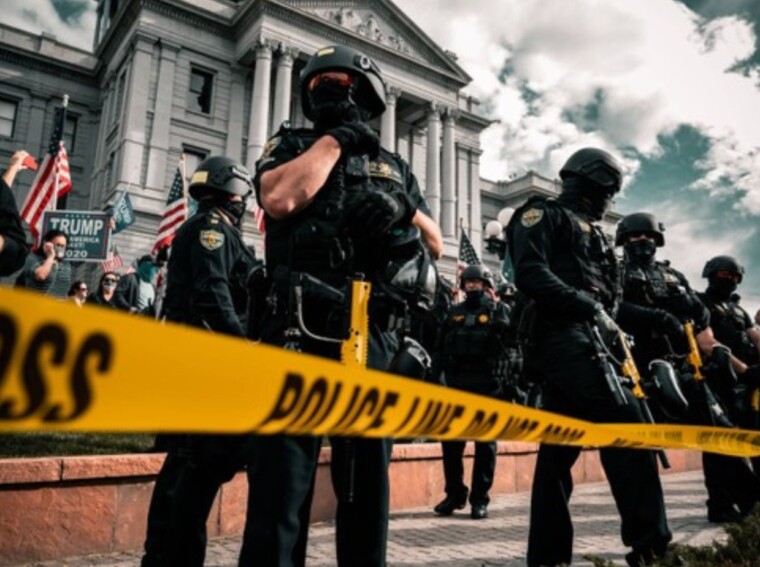Berikut Ini Termasuk Ancaman Internal Dalam Bidang Politik Adalah
 As an expert in political analysis, I’ll delve into the realm of internal threats within the political landscape. Berikut ini termasuk ancaman internal dalam bidang politik adalah translates to The following are internal threats in the field of politics. Understanding these potential dangers is crucial for maintaining stability and security within a nation’s governance.
As an expert in political analysis, I’ll delve into the realm of internal threats within the political landscape. Berikut ini termasuk ancaman internal dalam bidang politik adalah translates to The following are internal threats in the field of politics. Understanding these potential dangers is crucial for maintaining stability and security within a nation’s governance.
When examining political risks, one must consider various factors that could destabilize a government from within. Internal threats can manifest in different forms, such as corruption, power struggles, or ideological conflicts among key figures. These challenges have the potential to disrupt the functioning of governmental institutions and erode public trust in the leadership.
By identifying and addressing these berikut ini termasuk ancaman internal dalam bidang politik, policymakers can work towards implementing effective strategies to mitigate risks and safeguard democratic principles. Stay tuned as we explore specific examples of internal threats that can impact the political landscape significantly.
Definition of Internal Threats in Politics
In the realm of politics Berikut Ini Termasuk Ancaman Internal Dalam Bidang Politik Adalah, internal threats refer to dangers that originate from within a country’s own borders rather than from external sources. These threats can encompass a wide range of actions and circumstances that undermine the stability, security, and integrity of a nation’s political system. Understanding these threats is crucial for safeguarding the democratic processes and institutions vital to the functioning of a state.
Internal threats in politics can manifest in various forms, including:
- Corruption: When individuals in positions of power abuse their authority for personal gain or engage in illicit activities that compromise the public trust.

- Political Polarization: The deepening divide between different ideological factions within society, leading to increased hostility, gridlock in decision-making processes, and erosion of social cohesion.
- Violent Extremism: Radical groups or individuals resort to violence as a means to achieve their political objectives, posing a direct threat to peace and stability.
- Erosion of Democratic Norms: Gradual undermining of democratic principles such as rule of law, freedom of speech, and respect for human rights can weaken the foundation of a democratic society.
To effectively address internal threats in politics, governments must implement robust mechanisms for accountability, transparency, and conflict resolution. By fostering open dialogue among diverse stakeholders and promoting civic engagement, societies can mitigate the risks posed by internal challenges and uphold the values essential for democratic governance. Stay informed about current events related to these issues as they continue to shape political landscapes worldwide.
Types of Internal Threats
When examining the realm of politics, Berikut Ini Termasuk Ancaman Internal Dalam Bidang Politik Adalah it becomes evident that internal threats play a significant role in shaping the landscape. Let’s delve into some common types of internal threats encountered within political spheres:
 One prevalent internal threat in the political domain is corruption. This insidious practice involves individuals abusing their power for personal gain, leading to a distortion of governance and public trust. Examples include embezzlement of funds, bribery, and nepotism.
One prevalent internal threat in the political domain is corruption. This insidious practice involves individuals abusing their power for personal gain, leading to a distortion of governance and public trust. Examples include embezzlement of funds, bribery, and nepotism.
Factionalism represents another form of internal threat where divisions arise within political parties or entities. Competing factions often prioritize their interests over collective goals, resulting in instability and hindered decision-making processes.
The manipulation of electoral processes through electoral fraud poses a grave internal threat to the democratic principles of fair representation and free choice. Tactics like voter intimidation, ballot tampering, and vote-buying undermine the legitimacy of elections.
In today’s digital age, misinformation campaigns have emerged as a potent internal threat in politics. Deliberate dissemination of false information aims to deceive the public, sway opinions, and create societal discord.
Lack of Accountability
A critical internal threat is the lack of accountability, where leaders evade responsibility for their actions or decisions. Without mechanisms ensuring transparency and answerability,  malfeasance can go unchecked.
malfeasance can go unchecked.
As we navigate through these various facets of internal threats in politics, it becomes imperative to address them proactively to safeguard the integrity and effectiveness of governance systems.
Reflecting on the various internal threats in the political sphere, it’s evident that these challenges are intricate and multifaceted. From corruption to power struggles and ideological divides, navigating through these obstacles requires a comprehensive approach.
Addressing internal threats demands a concerted effort from all stakeholders involved. Building transparency, fostering accountability, and promoting ethical practices are crucial steps towards mitigating the risks posed by internal political dynamics.
Furthermore, enhancing civic engagement and promoting inclusivity within political processes can help bolster resilience against internal threats. A well-informed and active citizenry serves as a critical safeguard against manipulative tactics that seek to undermine democratic principles.

